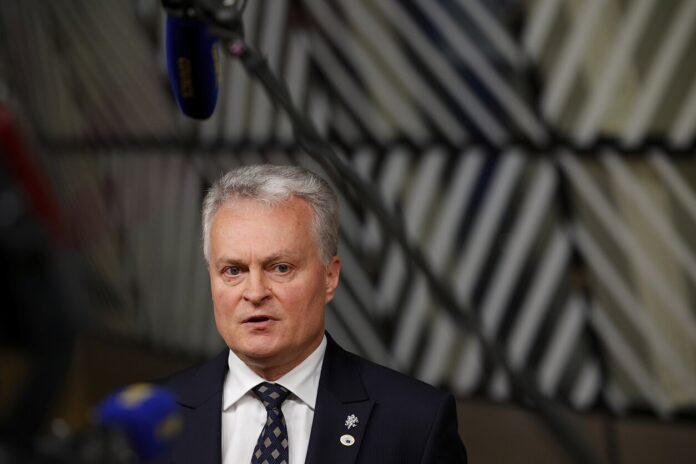
Politicians speak out on president’s stance
On June 25, before the meeting of the European Council, 17 European Union leaders signed a letter in response to a controversial anti-LGBTQ law recently adopted in Hungary. In it, without naming that country, signatories deplored “threats against fundamental rights and in particular the principle of non-discrimination on grounds of sexual orientation”. The new Hungarian law became a subject of disputes at the European Council itself, where Hungarian Prime Minister Viktor Orban came under fire from Western European leaders. Nauseda backed Hungary after the meeting and said that some EU leaders commented on the Hungarian law without having familiarized themselves with the text, therefore, they should not take on the role of judges.
Lithuanian President Gitanas Nausėda’s refusal to sign the declaration, widely seen as reproaching Hungary, has sparked controversy at home. Lithuanian Prime Minister Ingrida Simonyte said: “These are choices, and I think he should comment on them. I believe remarks in the letter, which is a very moderate letter, for the Hungarian government have a basis.”

Some politicians say it was the president’s personal decision and call on state institutions to improve their coordination to avoid the image of a country without a common position in the eyes of the international community. Foreign Minister Gabrielius Landsbergis, leader of the ruling conservative Homeland Union – Lithuanian Christian Democrats, says he cannot imagine how positions on the sexual minority issue can be aligned in Lithuania. Meanwhile, Ramunas Karbauskis, leader of the Lithuanian Farmers and Greens Union (LFGU), the biggest opposition party in Lithuania, has welcomed Nausėda’s move and says it reflects the opinion of the majority of people in Lithuania.
Foreign Minister Landsbergis said these are value-based issues, where attitudes may differ and letters of this nature are not mandated by state institutions, meaning that politicians who sign them decide on that personally. Speaker of the Lithuanian Seimas Viktorija Cmilytė-Nielsen, leader of the Liberal Movement, noted that when Lithuania joined the European Union, it committed to respect certain values, human rights, tolerance, and the principle of non-discrimination. “I believe it’s important that such positions by the majority of EU countries are expressed as they see arising threats to these rights and these values in one or another country. First of all, I would like to say I am glad that the Foreign Ministry and the government have clearly expressed their positions as the similar letter was signed on behalf of Lithuania last week.”
Economy and Innovation Minister Aušrinė Armonaitė, leader of the liberal Freedom party, part of the ruling block, expressed her regret that Lithuania was not among the states that signed the declaration. “We, as Lithuania, must do a lot in terms of our internal policies on the issue of the LGBTQ community as discriminatory laws still exist and we must defend the rights of all of our citizens, both in terms of our internal policies, and also in the European or international space,” the minister said.
LFGU leader Karbauskis says he fully backs Nauseda’s decision, saying that the president represented the majority of the nation and adding that it’s impossible to represent all opinions when positions differ.
MEP Vilija Blinkevičiūtė, leader of the Social Democratic Party of Lithuania, says institutions should better coordinate their positions as “it doesn’t look good when there’s no joint position”.
News from the Lithuania Daily News Bulletin





























